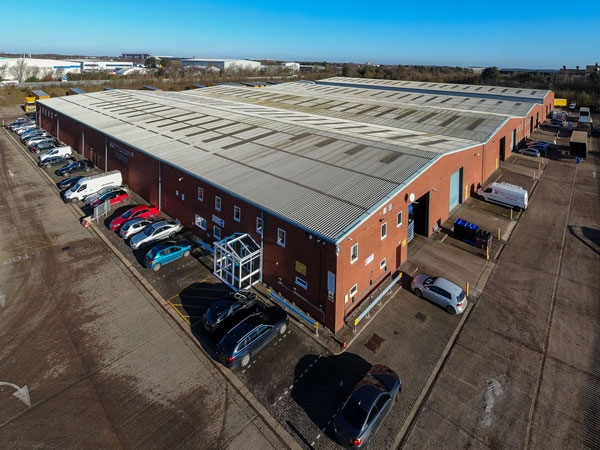The Role of Independent Oversight in Protecting Retail Supply Chains
Retail supply chains operate under intense pressure. Tight margins, seasonal demand cycles, and high customer expectations leave little room for error. When product quality fails at scale, the consequences extend far beyond individual shipments — they affect brand reputation, retailer relationships, and long-term profitability.
Independent oversight plays a critical role in protecting retail supply chains from avoidable disruptions.
Retail Risk Is Amplified at Scale
Unlike small batch importers, retailers often manage high-volume purchase orders across multiple SKUs and suppliers. A single production issue can impact thousands of units distributed across multiple markets.
Common risks include:
- Inconsistent product specifications
- Packaging defects
- Labeling non-compliance
- Safety or regulatory violations
- Undisclosed subcontracting
When these issues are detected late, retailers may face chargebacks, recalls, excess returns, and strained vendor relationships.
Independent verification introduces an objective layer of control before products reach distribution centers.

Why Internal Controls Aren’t Always Enough
Suppliers often maintain their own internal quality control teams. While internal oversight is important, it may not always align fully with retailer expectations.
Production pressures, cost targets, and tight deadlines can influence decision-making within factories. In some cases, minor deviations are overlooked to maintain output schedules.
Partnering with a qualified china inspection company adds independent verification that is not influenced by production incentives. Third-party oversight reinforces adherence to agreed specifications and compliance standards.
This additional layer of accountability significantly reduces the risk of defects reaching retail shelves.
Protecting Brand Reputation
Retailers invest heavily in brand positioning and customer trust. Quality failures can quickly undermine that investment.
Defective or non-compliant products may result in:
- Negative online reviews
- Increased return rates
- Retailer penalties
- Regulatory scrutiny
- Loss of repeat customers
Independent oversight helps detect quality drift early in production, rather than after goods are already distributed.
By working with an experienced china inspection company, retailers gain visibility into manufacturing processes and can address issues before they escalate into public-facing problems.
Enhancing Supplier Accountability
Independent oversight also strengthens supplier discipline. When factories understand that production will be reviewed objectively, adherence to documented standards typically improves.
Clear reporting, standardized inspection criteria, and documented findings create measurable performance benchmarks. Over time, this transparency supports more stable supplier relationships and improved output consistency.
Rather than relying solely on contractual language, retailers reinforce expectations through structured verification.
Reducing Disruption Across the Supply Chain
Retail supply chains involve multiple stakeholders — importers, logistics providers, distribution centers, and storefronts. A single quality failure can disrupt each stage.
Independent inspections reduce:
- Emergency freight costs
- Shipment rejections
- Warehouse sorting expenses
- Post-delivery corrective actions
Preventing these disruptions protects both operational flow and financial stability.
A Strategic Layer of Risk Management
In competitive retail markets, margins are thin and consumer expectations are high. Independent oversight is not simply a compliance tool — it is a risk management strategy.
By introducing objective verification into production workflows, retailers strengthen supply chain resilience and reduce exposure to costly quality failures.
In global sourcing environments, protecting retail supply chains requires more than trust. It requires structured, independent visibility at critical production stages.





 Despite their crucial role, haulage companies face various challenges in their day-to-day operations. One of the primary concerns is managing an ever-changing demand for transportation services. Fluctuations in the economy, seasonal demand variations and unforeseen events such as natural disasters or pandemics can significantly impact the volume of shipments. Haulage companies must adapt swiftly, balancing their resources to meet the needs of their clients while maintaining operational efficiency. Furthermore, rising fuel costs and increasingly stringent environmental regulations pose additional challenges. Haulage companies in Birmingham are investing in eco-friendly initiatives, such as utilizing low-emission vehicles, optimizing routes to reduce mileage and implementing driver training programs to improve fuel efficiency. These efforts not only reduce their carbon footprint but also help them remain competitive in a rapidly evolving industry.
Despite their crucial role, haulage companies face various challenges in their day-to-day operations. One of the primary concerns is managing an ever-changing demand for transportation services. Fluctuations in the economy, seasonal demand variations and unforeseen events such as natural disasters or pandemics can significantly impact the volume of shipments. Haulage companies must adapt swiftly, balancing their resources to meet the needs of their clients while maintaining operational efficiency. Furthermore, rising fuel costs and increasingly stringent environmental regulations pose additional challenges. Haulage companies in Birmingham are investing in eco-friendly initiatives, such as utilizing low-emission vehicles, optimizing routes to reduce mileage and implementing driver training programs to improve fuel efficiency. These efforts not only reduce their carbon footprint but also help them remain competitive in a rapidly evolving industry.
 Pet lovers are another group of people who can benefit from custom made pet portraits. They may not own pets themselves, but they appreciate the companionship and joy that pets can bring to our lives. Pet lovers may have friends or family members who own pets and want to give them a meaningful and personal gift.
Pet lovers are another group of people who can benefit from custom made pet portraits. They may not own pets themselves, but they appreciate the companionship and joy that pets can bring to our lives. Pet lovers may have friends or family members who own pets and want to give them a meaningful and personal gift.  Gold Mop Cypress pruning helps to maintain the plant’s shape and size by removing unwanted or overgrown branches. Without pruning, the plant can become misshapen, leggy, or too large for the area it is planted in. Pruning helps to keep the plant within the desired size and shape, making it easier to manage and enhancing its overall appearance.
Gold Mop Cypress pruning helps to maintain the plant’s shape and size by removing unwanted or overgrown branches. Without pruning, the plant can become misshapen, leggy, or too large for the area it is planted in. Pruning helps to keep the plant within the desired size and shape, making it easier to manage and enhancing its overall appearance. The fourth challenge that Keaton faced was hiring the right employees. He knew that he needed a team of talented and dedicated employees to help him grow his business, but he struggled to find the right people. To overcome this challenge, he spent a lot of time and effort on the hiring process. He created a detailed job description and conducted multiple rounds of interviews to find the best candidates. He also offered competitive salaries and benefits to attract top talent. Despite these challenges, Keaton was able to build a thriving business in Perth. His business, which sells handmade candles and home decor items, has become very popular in the city. He has a loyal customer base and a strong reputation for quality products and excellent customer service. One of the keys to Keaton’s success has been his focus on customer satisfaction. He believes that the customer is always right, and he goes above and beyond to make sure that his customers are happy. He also listens to feedback from his customers and uses it to improve his products and services.
The fourth challenge that Keaton faced was hiring the right employees. He knew that he needed a team of talented and dedicated employees to help him grow his business, but he struggled to find the right people. To overcome this challenge, he spent a lot of time and effort on the hiring process. He created a detailed job description and conducted multiple rounds of interviews to find the best candidates. He also offered competitive salaries and benefits to attract top talent. Despite these challenges, Keaton was able to build a thriving business in Perth. His business, which sells handmade candles and home decor items, has become very popular in the city. He has a loyal customer base and a strong reputation for quality products and excellent customer service. One of the keys to Keaton’s success has been his focus on customer satisfaction. He believes that the customer is always right, and he goes above and beyond to make sure that his customers are happy. He also listens to feedback from his customers and uses it to improve his products and services.